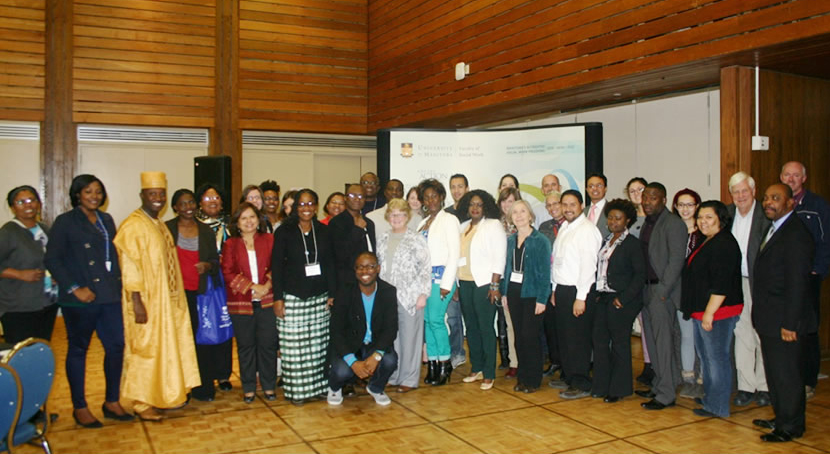International Migrants Day
Established in 2000 by the General Assembly of United Nations, International Migrants Day was created to highlight the human rights of migrants, whose number throughout the world is growing. According to the United Nations, the total number of international migrants has increased from an estimated 175 million in 2000, to 232 million today.
The University of Manitoba is no stranger to migrants, and neither is our province. Refugees, internationally recruited employees, students, and many others, come to Manitoba knowing our province and country have a strong commitment to democracy, opportunity, and human rights.
It is the basic principle that all people regardless of where they’re from deserve to be treated with fairness and respect that highlights the need for International Migrants Day. By abiding by these standards, institutions like the U of M help forge communities that are framed by diversity, mutual respect, and social justice.
Many U of M scholars are committed to this cause through their research work and/or community engagement activities. A sample of some of them are below. For additional stories about the impact of our community engagement around the world, visit our Community Stories site.
For the past seven years, the Faculty of Social Work has hosted the Strangers in New Homelands Conference, and last year, conference chair and U of M professor Michael Baffoe summarized the situation, writing:
World migration is now a reality. People are constantly moving to seek either better opportunities or to seek protection from all kinds of dangers. The new societies to which migrants go also need newcomers for all kinds of reasons: for population growth, to fill labor shortages and to enrich their cultural landscape. It is therefore an undeniable fact that both migrants and host societies need each other for their mutual benefits. It is therefore pertinent for both groups to find ways of co-existing and building strong, viable and inclusive communities.
“As Manitoba’s only accredited social work program, our faculty members, students, and graduates in the Faculty of Social Work are strongly committed to helping migrants arriving to this province find a new sense of ‘home’,” says James Mulvale, Dean of the Faculty of Social Work. “We advocate for their rights and work with governments to develop immigration policies and services that are effective and just. Many of the students enrolled in our undergraduate and graduate programs come from newcomer communities.”
As an associate professor in biochemistry and medical genetics, Francis Amara does not study refugee policies or integration, but he is committed to it. He is himself an immigrant from Sierra Leone and in 2009 he was named a Top 25 Canadian Immigrant from Canadian Immigrant. He was recognized for his community engagement activities for the benefit of children in Winnipeg and throughout Manitoba, and for his leadership in the Sierra Leone community in Manitoba. He also founded the Sierra Leone Refugee Resettlement, Inc., aiding newcomers to Canada and guiding new immigrants in all aspects of daily living, being particularly dedicated to ensuring the successful integration of refugee children into Manitoba’s school system.
Yatta Kanu also hails from Sierra Leone, and she is a professor in our Faculty of Education whose research focuses on educational access and equity for minority students, among other topics. In 2007, Kanu received funding from the Social Sciences and Humanities research Council to investigate ways to foster educational success for the large number of African refugees who come to Manitoba every year.
Another professor engaged in research on social justice and inequality, especially among newcomers to Canada, is Lori Wilkinson in the department of sociology. Through the U of M’s Centre for Human Rights Research, Wilkinson is examining factors that influence school success among immigrant and refugee children, as well as their experiences with bullying, mental health, and finding jobs. She teaches a number of courses that help others understand these issues, including: Ethnic Relations; Canadian Society and Culture; and Seminar in Intergroup Relations – Immigration and Refugee Studies.
Tell us the impact of your community engagement by submitting your story here.







